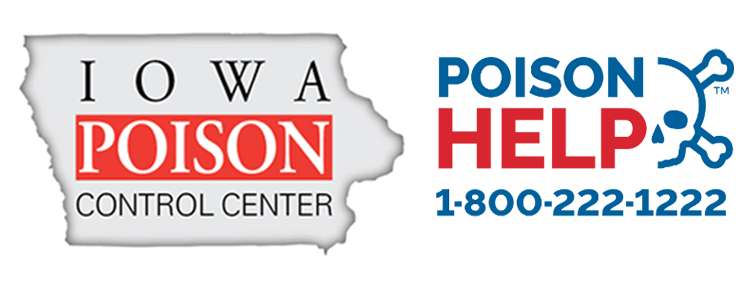
For Poisoning Questions or Emergencies, Call the Poison Experts at 1-800-222-1222
Fall & Winter Precautions
The onset of winter brings not only chilly weather but also cough and colds, holiday decorations and parties. Accidental poisonings usually occur when the normal household routine is changed. For example, traveling, illness or visitors in the home increase the risk of a poisoning. Listed below are winter safety tips for adults with young children.
Cough and Cold Medication
Winter means cough and cold season, therefore, medications may be more available in the home than at other times of the year. Children are attracted to products that are flavored to taste good or resemble candy or beverages. Cough and cold medication may contain antihistamines, decongestants, and cough suppressants. When used incorrectly, they may cause agitation or drowsiness. In large doses they may have effects on blood pressure and heart rhythm. Non-aspirin and aspirin products are used frequently to treat fever. Be sure you are not using 2 or more products with the same ingredients, particularly Acetaminophen.
Remember:
- Keep all medications in a locked cupboard, and return them to safe storage immediately after use.
- Always check with other adults to prevent-double dosing of medication.
- Be sure to turn on lights at night to ensure that the right medication and the right dose is given.
Thermometers
Old glass mercury thermometers may break in a child's mouth. The mercury found in thermometers is not absorbed into the blood system, so cuts in the mouth are the only concern. The mercury in thermometers is considered a hazardous waste. Do not discard thermometer in your regular trash. Dispose of thermometers at a hazardous waste site. Use digital thermometers to avoid the risk of breaking glass.
Car Care Products
Even small amounts of antifreeze for car radiators and windshield wiper fluid can cause severe illness if swallowed. If you add antifreeze to your car be aware of any children in the area--antifreeze has a sweet taste which appeals to children. If there is any antifreeze left over, keep it in its original container with a safety cap and store it in a locked closet, cabinet or trunk of car. Rinse out empty containers with water and throw them away with the safety caps in place. Properly dispose of used, drained liquids as soon as possible. If you think someone has tasted or swallowed some antifreeze call the Poison Center immediately.
Sidewalk Salt
Salt used on driveways and sidewalks when it snows can be dangerous to a child if eaten. The salt container should be kept with other poisons-- up and out of reach or locked in a cabinet.
Pesticides
As the weather gets cold, other living things want to get into your warm home. Many people put out mouse poisons and ant baits. Remember to keep it inaccessible to young children and pets.
